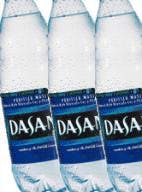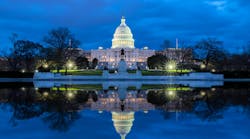The Coca-Cola Co. is being questioned regarding the use of the word "pure" in its advertising for Dasani bottled water because the product is specially treated London tap water.
Coca-Cola said it is in compliance with all guidelines and regulations. The highly sophisticated filtration process that the Britain water undergoes is the same process used in the bottled water treated and sold in the United States. The system removes such things as bacteria, viruses, salts, minerals, sugars, proteins and toxin particles from the municipal water at Coca-Cola's factory in Sidcup, London.
The Food Standards Agency, which is looking into the matter reported that the bottled water "does not appear to follow labeling guidance designed to protect consumers from mislabeling."
The FSA's guidelines state the term "pure" should only apply to "single ingredient foods or to highlight the quality of ingredients." Since Dasani takes tap water, a pure product, removes material through purification, then adds calcium, magnesium and sodium bicarbonate for taste, it may not be allowed to be called "pure," the FSA said.
The following are definitions from the FDA regarding bottled water.
* Artesian Water/Artesian Well Water–Water provided by deep wells from a confined aquifer (a water-bearing underground layer of rock or sand) in which the water level stands at some height above the top of the aquifer. (Well contains hydraulic pressure that allows the water to flow to the surface without pumping.)
* Mineral Water–Distinguished from other types of bottled waters by its constant level and relative proportions of mineral and trace elements at the point of emergence from the source. (No minerals can be added.) Bottled water containing not less than 250 ppm TDS may be labeled "mineral water."
* Purified Water–A USP (pharmaceutical) grade of water quality from EPA standards for potable water with microbial content under control but free from foreign substances with various stipulated ions and gases removed.
* Sparkling Water– Water that after treatment and possible replacement with carbon dioxide contains the same amount of carbon dioxide that it had at emergence from the source.
* Spring Water–Water obtained from an underground source that flows naturally to the surface or would flow naturally to the surface if it were not collected underground.
* Well Water–Water from a hole bored, drilled or otherwise constructed in the ground that taps the water of an aquifer.
* Distilled Water–Water that has been purified by passing through one or more evaporation-condensation cycles and contains essentially no dissolved solids.
Source: Ohio.com, London AP, WQP


